3 Golf Shots You Didn't Know You Needed
In this article and video, Golf Monthly Top 50 Coach Alex Elliott shares his tips on how to utilise three useful recovery shots

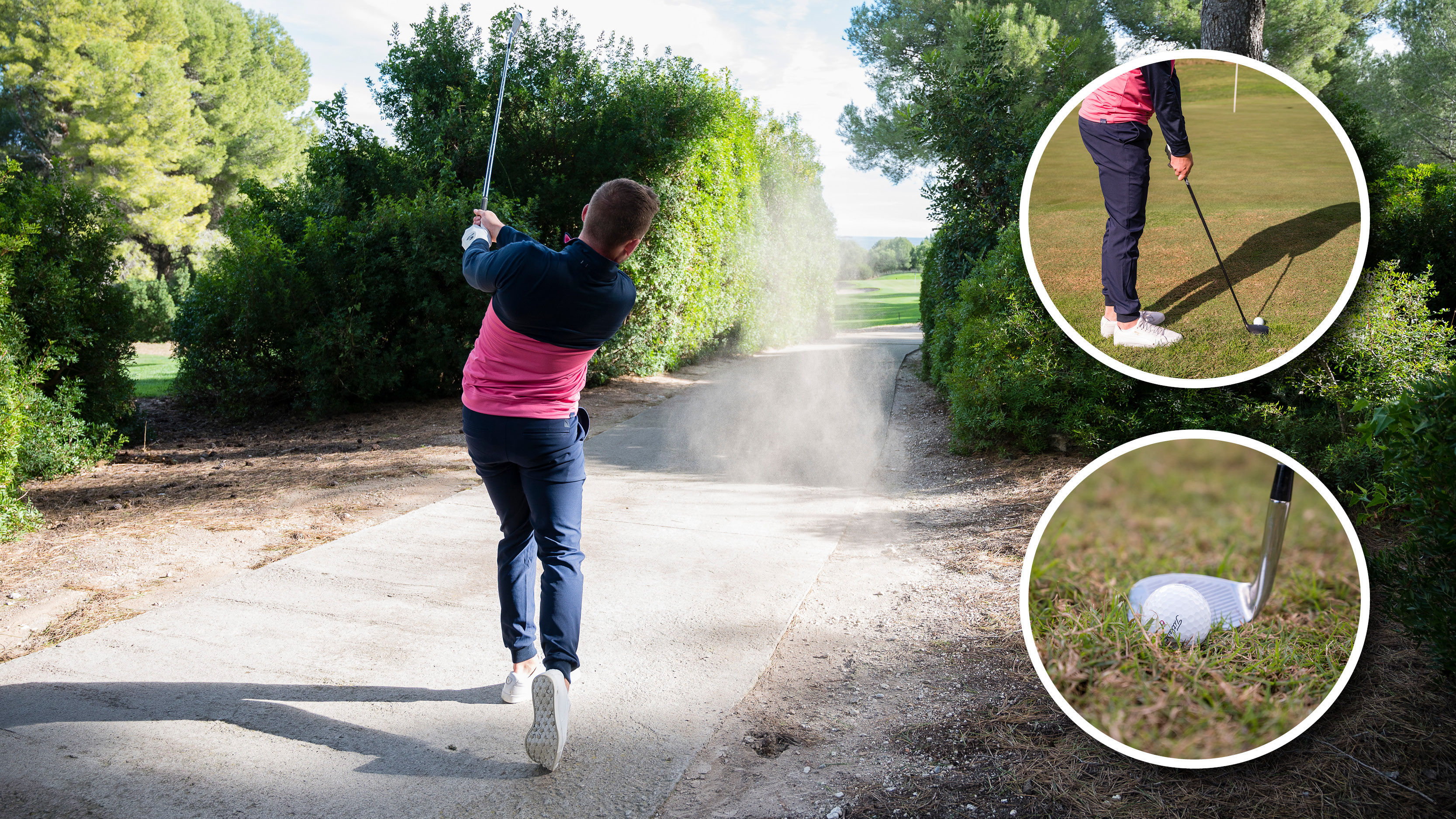
I think it would be fair to say that a round of golf rarely goes exactly to plan, so when problems arise it's worth having a few dependable recovery shots to rely on.
In this video and article, Golf Monthly Top 50 Coach Alex Elliott introduces three go-to shots that could help you escape trouble unscathed...
3 golf shots you didn't know you needed
1. Hybrid chip and run
For those of you that are not confident chippers, or if you find yourself in a tricky lie around the green, opting to chip with your hybrid could be a stroke of genius. In the video above, I have quite a lot of fringe to go through, and this shot gives the ball a little more loft before it starts rolling like a putt.
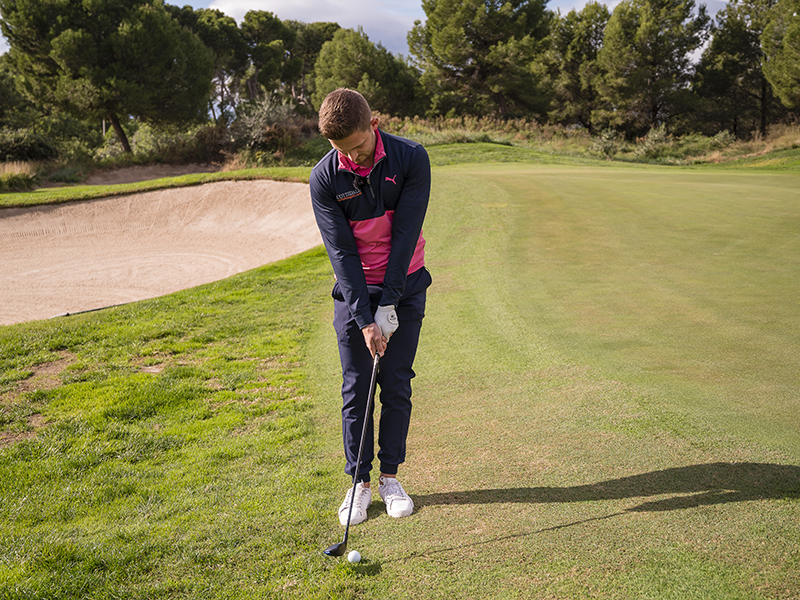
To play it, walk in a little bit closer than you would normally with a hybrid and hold it right at the bottom of the grip, as shown in the video. Open up your left foot a little, keep your weight on your left side and just make what feels like a putting stroke. It couldn't be simpler.
2. Toe down chip shot
You may have seen this shot played by some of the best tour professionals, and it certainly makes chipping a little less daunting for amateurs. When you address the ball, make sure to align it to the toe of your wedge. Then, as I demonstrate in the video, walk in closer which will steepen the shaft angle. With your grip, make sure you go low down the club, until you are almost touching the steel of the shaft.
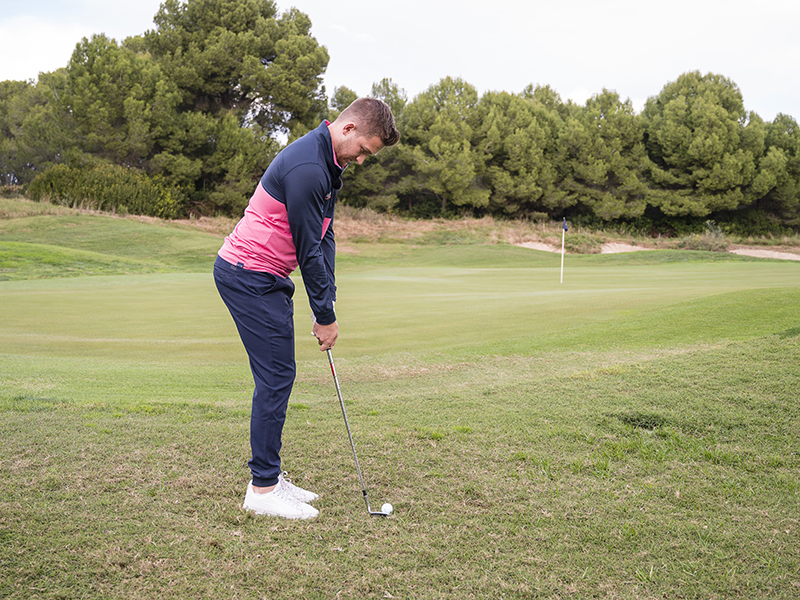
Keep your weight on your lead side and make a very simple motion that resembles an extended putting stroke. With the toe down, the heel won't dig into the ground and cause the dreaded chunk, allowing you to slide the club under the ball much easier. You can use this technique with any of your wedges and it offers a nice, safe greenside option.
3. The punch shot
The final shot in this list is a low punch shot. While the scenario in the video is extreme, the steps to execute the shot are the same. This shot is so valuable when you are in trouble on the golf course, and you can easily repeat it with these five steps.
Subscribe to the Golf Monthly newsletter to stay up to date with all the latest tour news, equipment news, reviews, head-to-heads and buyer’s guides from our team of experienced experts.
Firstly, you need to consider club selection. If the yardage usually calls for a 7-iron, I'd advise clubbing up at least once but maybe even twice. Next, change your grip in a similar way to the toe down chip shot, getting low down the club towards the steel. This will help to keep the ball flight down.
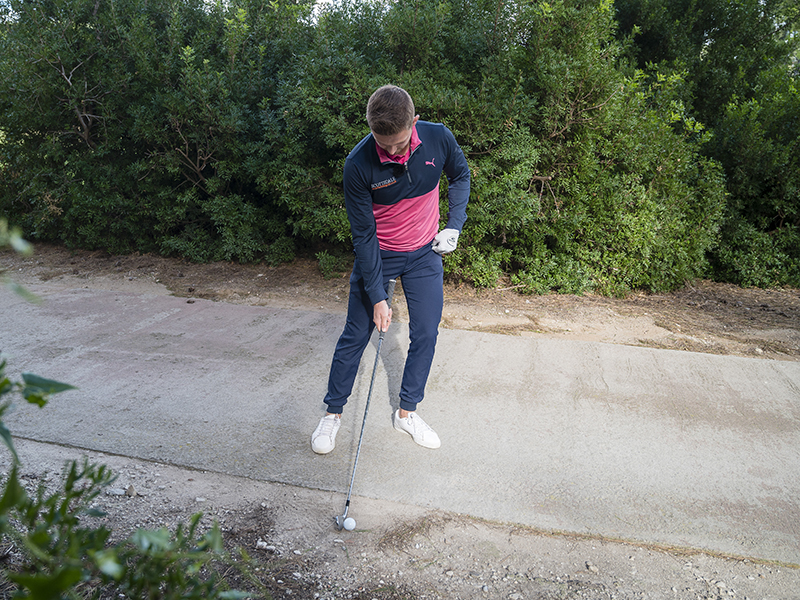
The third compensation is all about the ball position; move it further back in your stance to lower the flight. Fourth, I want you to keep your weight on your lead side throughout the shot, and finally, just make a shoulder height swing going back and through.
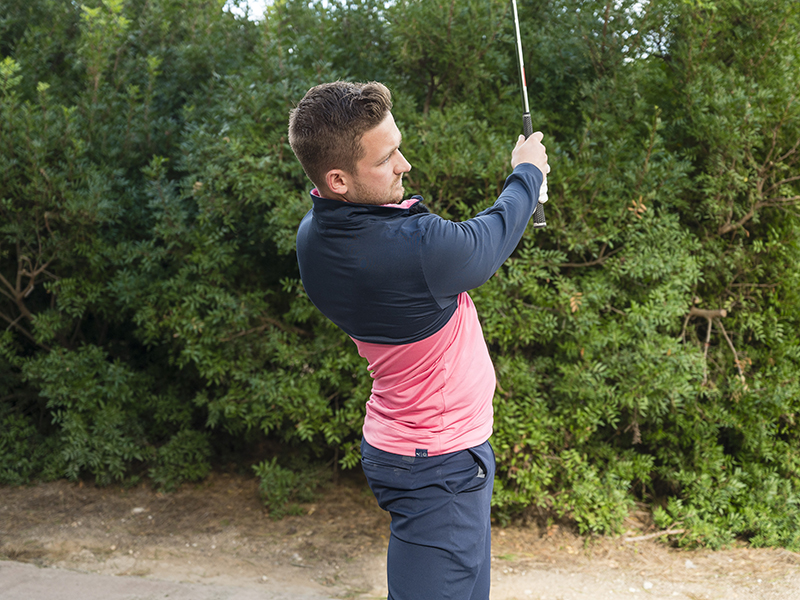
Give each of these shots a practice next time you have 30 minutes to go to the practice range. You will find yourself getting out of trouble without leaking unnecessary shots.

Location: Mottram Hall
Alex spent a great deal of time learning the game from fellow northwest golfer, Andrew Murray, who was a European Tour regular from 1979 to 1995. He spent three years on the European Tour caddying for Andrew’s son, Tom, before taking his PGA qualifications. His passion for the game and personality in front of the camera has helped him to create a thriving social media platform on Instagram and YouTube, where he offers a whole host of tips and advice to help viewers shoot lower scores.
Most significant influences on your teaching:
Mike Bender's book, 'Build The Swing Of A Lifetime', which I read during my PGA qualifications. He uses so many different tools to help students deliver the club better when hitting the golf ball. Andrew Murray, too. He helped form the way I interact with golfers and simplified what can be a complex game for a club golfer.
Advice for practice:
I like to get students to work in sets of five golf balls – three drills shots to two course shots. The drill shots have no consequence, but with the two course shots, I ask the student to create a green or fairway and go through a full routine.
Greatest success story:
One of my students hadn’t played golf for ten years - he'd lost his love for the game. After watching my online Instagram and YouTube content, he came for several golf lessons and has now joined a local golf club. Knowing I've helped get someone back into golf... you can't beat that.